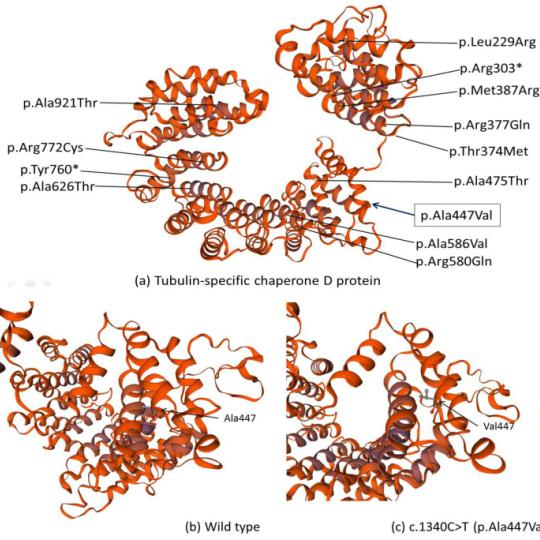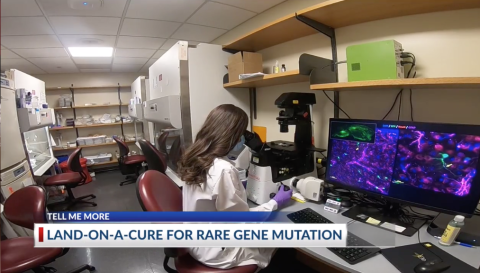Mutations in tubulin-specific chaperon D (TBCD), the gene encoding one of the co-chaperons required for the assembly and disassembly of the α/β-tubulin heterodimers, have been reported to cause perturbed microtubule dynamics, resulting in debilitating early-onset progressive neurodegenerative disorder. Here, we identified two novel TBCD variants, c.1340C>T (p.Ala447Val), and c.817+2T>C, presented as compound heterozygotes in two affected siblings born to unaffected carrier parents. Clinical features included early-onset neurodegeneration, failure to thrive, respiratory failure, hypotonia, muscle weakness and atrophy and seizures. We established the genotype-phenotype relationship of these TBCD pathogenic variants and provided insight into the protein structural alteration that may contribute to this chaperone-associated tubulinopathy.






